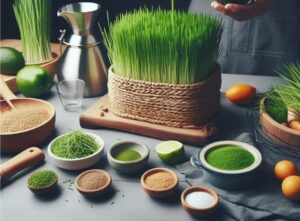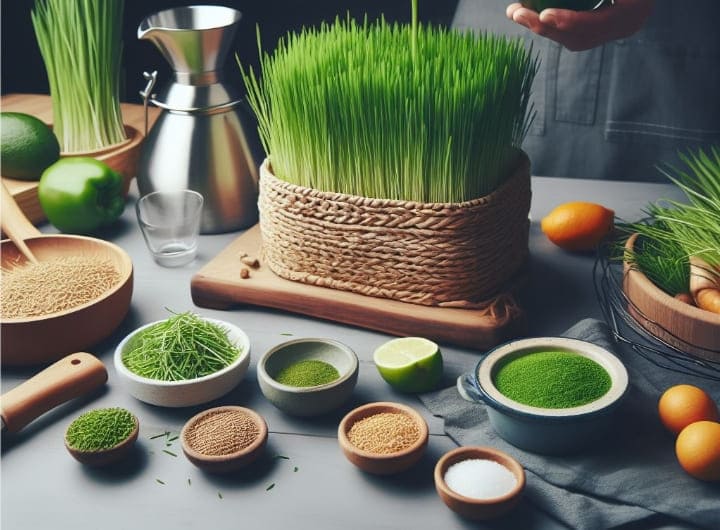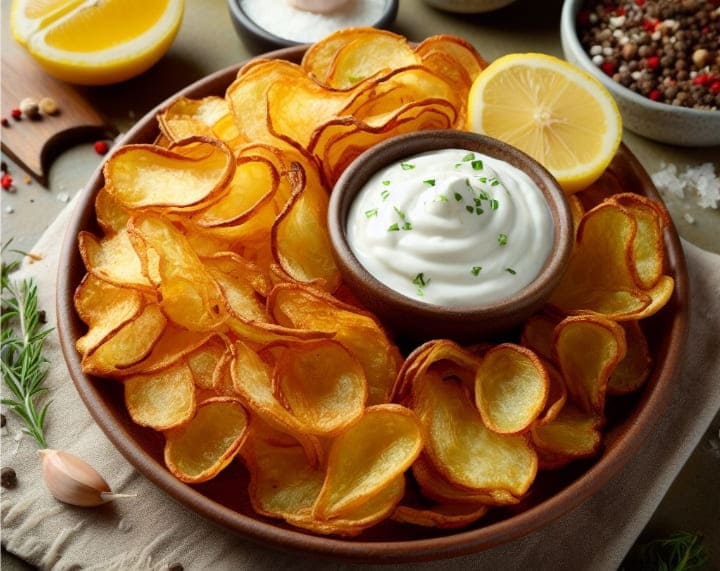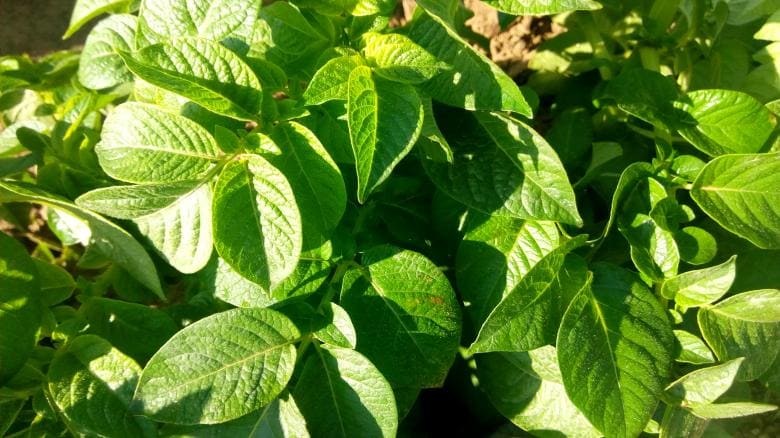
Potato leaves are the edible leaves of the potato plant (Solanum tuberosum). These leaves are rich in nutrients and have been a staple in the diets of many cultures around the world, particularly in African and Asian cuisines. Potato leaves are an excellent source of essential vitamins, minerals, and antioxidants that offer a variety of health advantages.
Potato leaves, often overlooked and discarded, are a hidden gem of nutrition and well-being. While most of us are familiar with the starchy goodness of potatoes, the leaves of the potato plant are equally valuable and provide a range of health benefits. In this article, we’ll explore the incredible and scientifically proven health benefits of potato leaves and how you can make the most of this nutritious green.

Nutritional Content of Potato Leaves
Before we delve into the health benefits, let’s take a closer look at the impressive nutritional profile of potato leaves:
- Vitamins: Potato leaves are rich in vitamins A, C, and K. These vitamins play crucial roles in maintaining various bodily functions, from immune support to healthy skin and bone development.
- Minerals: They are a good source of minerals like iron, calcium, and potassium. Iron is essential for transporting oxygen in the blood, while calcium and potassium are vital for bone health and muscle function.
- Fiber: Potato leaves provide dietary fiber, aiding digestion and supporting a healthy gut.
- Antioxidants: They contain antioxidants such as chlorophyll and flavonoids, which help protect the body from free radical damage.
- Protein: Potato leaves offer plant-based protein, making them a valuable addition to vegetarian and vegan diets.
Now, let’s explore the health benefits of incorporating potato leaves into your diet:
What Are the Health Benefits of Potato Leaves?
The leaves of the potato plant are also incredibly nutritious and offer a range of health benefits. Some of the most well-known benefits include:
Benefits #1: Anti-Aging
Potato leaves’ combination of vitamins and antioxidants can have anti-aging effects on your skin. Here’s how they help combat the signs of aging:
- Vitamin C: The high vitamin C content in potato leaves boosts collagen production, which is essential for maintaining skin elasticity and reducing the appearance of fine lines and wrinkles.
- Antioxidants: The antioxidants found in potato leaves help protect your skin from the damaging effects of free radicals, potentially slowing down the aging process.
- Hydration: The water content in potato leaves helps keep your skin hydrated, preventing dryness and maintaining a youthful glow.
Incorporating potato leaves into your diet not only supports your internal health but also contributes to a more youthful and vibrant appearance.
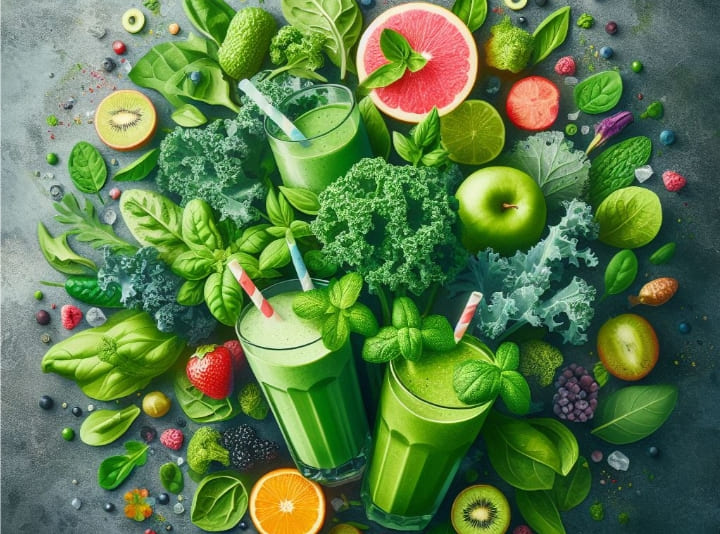
Benefits #2: Improved Vision
Potato leaves contribute to better vision due to their high vitamin A content. Here’s how they help:
- Vitamin A: This vitamin is essential for maintaining good vision and preventing eye-related issues. It plays a vital role in the health of your eyes.
Benefits #3: Boosted Immune System
The vitamin C content in potato leaves strengthens the immune system, helping the body fight off infections. Here’s how it works:
- Vitamin C: Known for its immune-boosting properties, vitamin C in potato leaves enhances the immune system, making it more effective at defending against illnesses.
Benefits #4: Enhanced Bone Health
Potato leaves contain significant amounts of calcium and vitamin K, which are essential for maintaining strong and healthy bones. Here’s how they contribute:
- Calcium: Essential for bone health, calcium in potato leaves supports bone density and strength, reducing the risk of osteoporosis.
- Vitamin K: This vitamin is crucial for bone health and blood clotting. It ensures that calcium is utilized effectively in the bones, promoting bone density.
Benefits #5: Cardiovascular Health
The potassium content in potato leaves plays a role in regulating blood pressure and reducing the risk of heart disease. Here’s how it helps:
- Potassium: Potato leaves’ potassium content helps maintain healthy blood pressure levels. It supports proper heart function and aids in the management of hypertension.
Benefits #6: Digestive Wellness
The dietary fiber in potato leaves aids in digestion and contributes to a healthy gut microbiome. Here’s how it benefits your digestive system:
- Dietary Fiber: Potato leaves provide dietary fiber, which promotes regular bowel movements, prevents constipation, and supports a healthy gut environment. This can lead to better overall digestive wellness.
Benefits #7: Anti-Inflammatory Properties
The antioxidants in potato leaves, including chlorophyll and flavonoids, have anti-inflammatory properties. Here’s how they reduce inflammation in the body:
- Antioxidants: The antioxidants found in potato leaves help reduce inflammation in the body, potentially alleviating symptoms of inflammatory conditions. They combat free radicals and reduce oxidative stress.
Benefits #8: Weight Management
The dietary fiber in potato leaves helps control appetite and promotes a feeling of fullness. Here’s how it aids in weight management:
- Dietary Fiber: By promoting a sense of fullness and controlling appetite, dietary fiber in potato leaves can help manage body weight and prevent overeating.

Benefits #9: Skin Health
The vitamin A content in potato leaves is not only beneficial for vision but also for your skin. Here’s how it promotes healthy skin:
- Vitamin A: Vitamin A is essential for skin health. It helps maintain a clear complexion, supports skin cell renewal, and may reduce the appearance of blemishes.
Benefits #10: Hydration
Potato leaves have a high water content, which can help keep you hydrated. Here’s how they contribute to your overall fluid balance:
- Water Content: The high water content in potato leaves can help maintain hydration levels, especially during hot weather or strenuous activities.
Benefits #11: Energy Boost
Potato leaves provide essential B vitamins, which are crucial for energy metabolism. Here’s how they help increase your energy levels:
- B Vitamins: Potato leaves contain B vitamins, including B1 (thiamine), B2 (riboflavin), B3 (niacin), and B6 (pyridoxine), which play key roles in converting food into energy.
Benefits #12: Antioxidant Defense
Potato leaves’ antioxidants, such as chlorophyll and flavonoids, help protect your body from oxidative stress. Here’s how they act as a defense mechanism:
- Antioxidants: The antioxidants in potato leaves neutralize harmful free radicals, reducing the risk of chronic diseases and supporting overall health.
Benefits #13: Mental Well-Being
The nutrients in potato leaves, particularly vitamin B6, contribute to mental well-being. Here’s how they can positively affect your mental health:
- Vitamin B6: Vitamin B6 plays a role in the production of neurotransmitters like serotonin and dopamine, which are associated with mood and emotional well-being.
Potato leaves are a nutritious and delicious vegetable that can be enjoyed in a variety of ways. They are a good source of a variety of nutrients and have been shown to have a number of health benefits. If you are looking for a healthy and flavorful vegetable to add to your diet, potato leaves are a great option to consider.
Also Checkout:
- Benefits of Eating Cold Cooked Potatoes
- Benefits of Sweet Potato Pie
- Benefits of Air Potatoes and Potential Risks
- Benefits of Boiled Potatoes for Bodybuilding
- Benefits of Sweet Potato Leaves for Pregnancy
- Benefits of Potato Soap
- Potato in Socks Benefits, Myths and Risks
How to Enjoy the Benefits of Potato Leaves
Enjoying the numerous health benefits of potato leaves is a rewarding experience. Here’s a guide on how to incorporate potato leaves into your diet, how to eat them, recipes, recommended frequency, and some safety tips to ensure you make the most of these nutritious greens:
How to Incorporate Potato Leaves into your Diet
- Add them to salads: Potato leaves can be added to any type of salad. You can also add other nutritious ingredients, such as grilled chicken or fish, avocado, and nuts.
- Soups and Stews: Add potato leaves to your favorite soups or stews, just as you would with other leafy greens. They can infuse your dishes with extra nutrients and a delightful taste.
- Stir-fry potato leaves: Potato leaves can be stir-fried with other vegetables, such as garlic, ginger, and onions.
- Sauté potato leaves: Potato leaves can be sautéed in olive oil with your favorite herbs and spices.
- Add potato leaves to smoothies: Potato leaves can be added to smoothies for a boost of nutrition.
- Tea: Some cultures use potato leaves to make a soothing and nutritious tea. Steep the leaves in hot water and enjoy the herbal infusion.
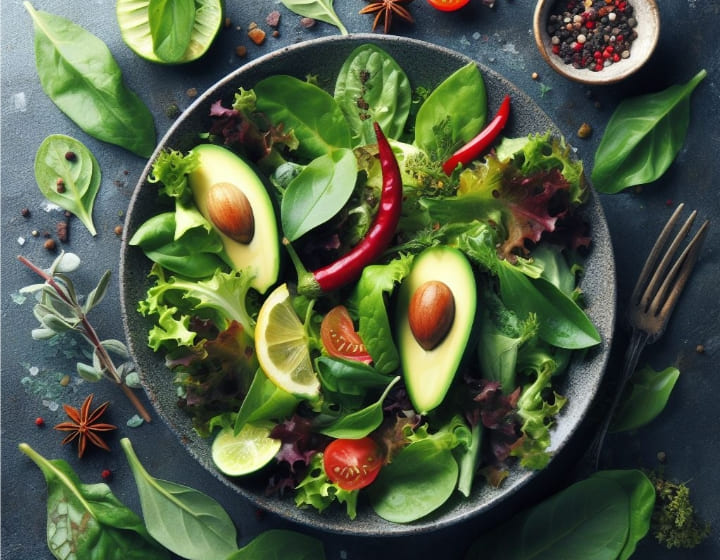
How to Eat Potato Leaves
Potato leaves can be eaten raw, cooked, or steamed. If you are eating potato leaves raw, be sure to wash them thoroughly first. You can also remove any yellowed or damaged leaves.
To cook potato leaves, you can either boil them, steam them, or stir-fry them. Boiling is the simplest method, but it can also leach out some of the nutrients in the leaves. Steaming is a better option for preserving the nutrients in the leaves. Stir-frying is a quick and easy way to cook potato leaves, but it is important to not overcook them, as this can make them tough.
Recipes
Here are a few simple recipes for potato leaves:
- Potato leaf salad: Combine potato leaves, chopped tomatoes, onions, and cucumbers in a bowl. Drizzle with olive oil and vinegar and season with salt and pepper to taste.
- Potato leaf soup: Sauté onions and garlic in olive oil until softened. Add potato leaves, water, and chicken or vegetable broth to the pot. Bring to a boil, then reduce heat and simmer for 15-20 minutes, or until the potato leaves are tender. Blend the soup until smooth and serve.
- Potato leaf stir-fry: Heat olive oil in a wok or large skillet over high heat. Add potato leaves, garlic, ginger, and onions to the wok. Stir-fry until the potato leaves are wilted and the onions are translucent. Add your favorite sauce or seasonings to taste. Serve with rice or noodles.
Frequency
The frequency of consuming potato leaves largely depends on your personal preferences and dietary requirements. As a general guideline:
- Fresh potato leaves can be included in salads and smoothies more frequently, even on a daily basis, as they are mild and versatile.
- Cooked potato leaves can be incorporated into your meals a few times a week, replacing or complementing other leafy greens.
- It’s advisable to maintain a balanced diet and enjoy potato leaves as part of your overall vegetable intake.
However, it is important to note that potato leaves contain oxalates, which can form kidney stones in some people. If you have a history of kidney stones, it is best to talk to your doctor before eating potato leaves.

Safety Tips
- Wash potato leaves thoroughly before eating.
- Remove any yellowed or damaged leaves.
- Cook potato leaves until they are soft and tender.
- Avoid overcooking potato leaves, as this can make them tough.
- If you have a history of kidney stones, talk to your doctor before eating potato leaves.
- If you’re growing your own potatoes and potato leaves, consider organic cultivation to minimize exposure to pesticides and harmful chemicals.
- Be aware that some individuals may be allergic to specific plants in the Solanum family, which includes potatoes. If you experience any unusual symptoms after consuming potato leaves, discontinue use and seek medical advice.
Overall, potato leaves are a healthy and delicious vegetable that can be enjoyed in a variety of ways. By following the tips above, you can safely incorporate potato leaves into your diet and enjoy their many health benefits.
Conclusion
Potato leaves are a hidden gem in the world of nutrition, offering a plethora of health benefits. From their impressive vitamin and mineral content to their potential antioxidant and anti-inflammatory properties, potato leaves are a true superfood. By incorporating them into your diet, you can support your immune system, promote digestive health, and enjoy the overall well-being they provide. Embrace the power of potato leaves and unlock their incredible health benefits today.
Related Posts
Sources and References: 1,2, 3.
.


